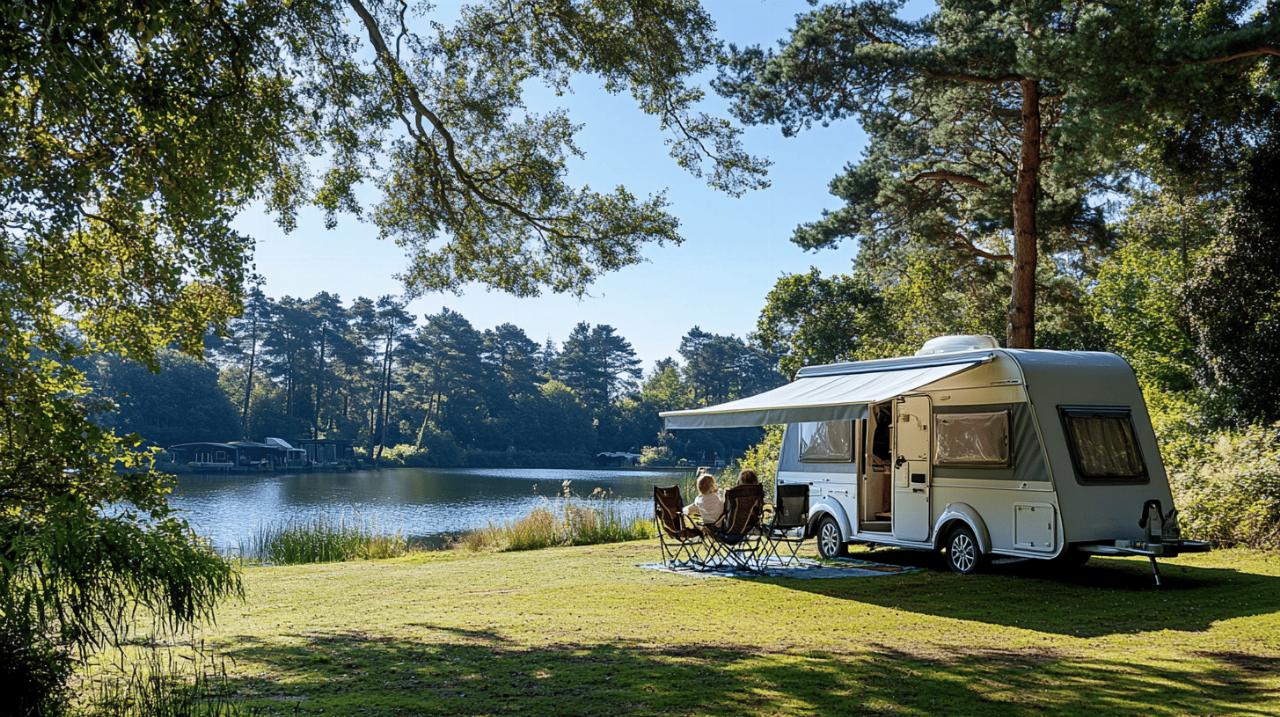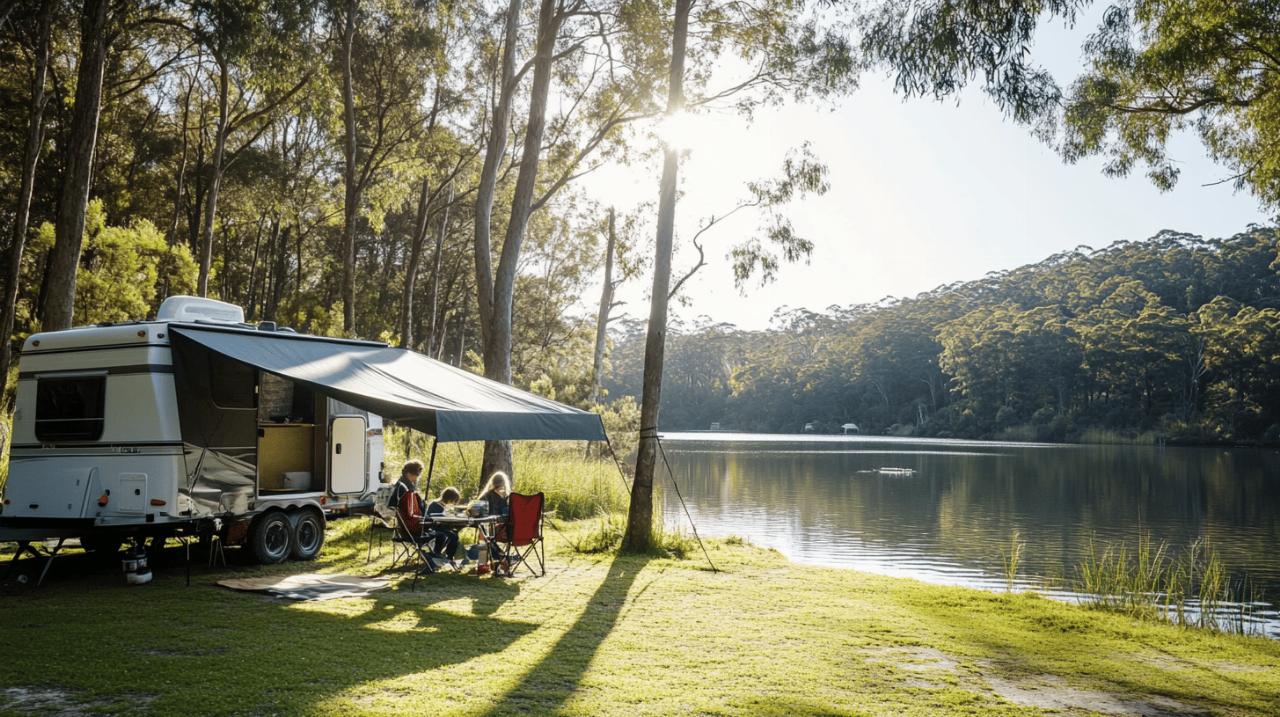For enthusiasts of compact folding caravans seeking robust insurance protection in 2025, navigating the myriad of available policies can prove both intricate and somewhat overwhelming. The burgeoning popularity of these ingeniously designed mobile accommodations, favoured for their space efficiency and practicality, has prompted a corresponding expansion in tailored insurance offerings. Understanding the nuances of coverage options, premium calculations, and provider distinctions becomes paramount for securing both financial peace of mind and comprehensive protection. This guide endeavours to illuminate the essential considerations, ensuring that owners of Raclet, Trigano, Eriba, and similar models can make informed decisions when selecting their insurance partner.
Understanding compact folding caravan insurance: what you need to know before purchasing cover
Securing appropriate insurance for a compact folding caravan represents a prudent investment, though it remains a non-mandatory requirement under UK law. Nevertheless, the inherent vulnerabilities of these mobile units to theft, accidental damage, and adverse weather conditions render comprehensive coverage an exceedingly sensible precaution. Owners should recognise that their vehicle's standard motor insurance policy does not extend protection to any damage sustained by the caravan itself, necessitating a dedicated policy. Policies typically commence with foundational coverage addressing fire, theft, storm, and accidental damage, forming the bedrock of protection for your cherished folding unit.
Types of Insurance Policies Available for Folding Caravans in the UK
The landscape of insurance offerings for folding caravans encompasses several distinct policy types, each calibrated to address varying needs and risk profiles. Comprehensive policies provide the most extensive protection, encompassing accidental damage, theft, fire, and storm-related incidents. Many insurers now offer specialist folding camper insurance adapted from their touring caravan frameworks, acknowledging the unique characteristics of these collapsible units. Optional enhancements frequently include malicious damage cover, public liability protection, new for old replacement provisions, and European travel extension, allowing owners to venture beyond British shores with confidence. Providers such as Caravan Guard have developed bespoke solutions that recognise the particular security challenges associated with folding campers, often requiring wheel clamps or hitchlocks when the unit is detached from the towing vehicle.
Why standard caravan insurance may not suffice for folding models
Folding caravans present distinctive vulnerabilities that standard touring caravan policies may not adequately address. The canvas construction, whilst offering remarkable space efficiency when erected, requires specialised consideration regarding weather resistance and material degradation. The folding mechanism itself introduces potential points of failure that necessitate specific coverage provisions. Furthermore, the compact storage profile often leads to different security requirements compared to rigid touring caravans. Insurers who understand these particularities can tailor policies to encompass the full spectrum of risks, including damage during the erection or dismantling process, a scenario rarely contemplated in conventional caravan coverage. The lending of your folding camper to family members or friends represents another consideration, with some policies explicitly accommodating this practice whilst others may impose restrictions or additional premiums.
Comparing Insurance Quotes: Premium Factors for Raclet, Trigano, and Eriba Folding Caravans
The annual cost of insuring a touring caravan typically averages around one hundred and seventy-two pounds, though this figure can fluctuate considerably, ranging from as modest as eighty pounds to upwards of four hundred and ten pounds or more, contingent upon numerous variables. For compact folding caravans specifically, these figures serve as useful benchmarks, though the unique characteristics of brands such as Raclet, Trigano, and Eriba introduce additional considerations into the premium calculation. Utilising online estimator tools provided by insurers can furnish prospective policyholders with tailored quotations reflecting their specific circumstances, enabling more accurate budgeting and comparison across providers.
How caravan value, age, and security features influence insurance costs
The valuation of your compact folding caravan stands as perhaps the most significant determinant of insurance premiums. Higher-value units naturally attract correspondingly elevated premiums, reflecting the greater financial exposure faced by insurers. The age of the caravan exerts a dual influence; whilst older models may possess diminished market values, they can also present heightened risks of mechanical failure or material deterioration, particularly concerning canvas integrity. Security measures implemented by the owner can yield substantial premium reductions, with discounts reaching up to twenty percent for comprehensive security installations. Investment in approved wheel clamps, hitchlocks, or tracking devices demonstrates a commitment to loss prevention that insurers reward handsomely. The storage arrangements likewise merit consideration, with units housed in secure, alarmed facilities potentially qualifying for discounts approaching twenty percent, contrasted with those stored on open driveways or unprotected premises.
Regional Variations in Insurance Premiums Across the United Kingdom
Geographical location within the United Kingdom exerts a notable influence upon insurance costs, reflecting varying theft rates, crime statistics, and claims histories across different regions. Urban centres, particularly those with elevated property crime rates, typically command higher premiums than rural or suburban locations. Coastal areas may face additional weather-related risk assessments, given increased exposure to storm damage and salt-air corrosion. The concentration of caravan ownership within specific regions can also impact pricing, with insurers adjusting rates based upon localised claims experience. Prospective policyholders residing in areas with historically higher claims frequencies should anticipate premiums at the upper end of the spectrum, whilst those in low-risk postcodes may benefit from more favourable rates. Consulting multiple providers and utilising comparison platforms becomes particularly valuable in identifying insurers who offer competitive rates for specific geographical areas.
Specialist Insurers versus Mainstream Providers: Finding the Most Competitive Rates for 2025
 The insurance marketplace for compact folding caravans divides broadly between specialist providers with deep expertise in recreational vehicle coverage and mainstream insurers offering caravan policies alongside broader portfolios. Specialist firms such as Caravan Guard, with over twenty-five years of dedicated experience and membership in the National Caravan Council, bring nuanced understanding of the unique risks and requirements associated with folding caravans. Their customer satisfaction ratings, often exemplified by Trustpilot scores approaching five stars based on thousands of reviews, reflect this specialisation. Conversely, mainstream providers may leverage economies of scale and multi-policy discounts to present competitive alternatives, particularly for customers consolidating various insurance needs under a single provider.
The insurance marketplace for compact folding caravans divides broadly between specialist providers with deep expertise in recreational vehicle coverage and mainstream insurers offering caravan policies alongside broader portfolios. Specialist firms such as Caravan Guard, with over twenty-five years of dedicated experience and membership in the National Caravan Council, bring nuanced understanding of the unique risks and requirements associated with folding caravans. Their customer satisfaction ratings, often exemplified by Trustpilot scores approaching five stars based on thousands of reviews, reflect this specialisation. Conversely, mainstream providers may leverage economies of scale and multi-policy discounts to present competitive alternatives, particularly for customers consolidating various insurance needs under a single provider.
Top-rated insurance providers offering bespoke folding caravan cover
Several insurers have distinguished themselves through commitment to exceptional service and comprehensive coverage for folding caravan owners. InsureMy, operating under the aegis of CETA Insurance Ltd and regulated by the Financial Conduct Authority, serves approximately ninety-six thousand caravan insurance customers, with seventy-one thousand holding touring caravan policies. Their longevity in the sector, spanning more than a quarter-century, coupled with an average customer retention period of five years, speaks to sustained satisfaction levels. Caravan Guard similarly commands respect within the community, their award-winning status underpinned by claims experience ratings averaging nine out of ten based on over seventeen hundred customer surveys conducted between 2020 and 2024. Both providers maintain visibility on prominent comparison websites including Compare The Market and MoneySuperMarket, facilitating straightforward quotation comparison. The availability of dedicated customer zones, accessible via policy identification numbers, enables policyholders to manage their coverage efficiently.
Exclusive discounts and club memberships that reduce insurance premiums
Membership in recognised caravanning organisations frequently unlocks preferential insurance rates, with discounts reaching seven and a half percent for affiliated members. The Caravan Club and similar associations negotiate these arrangements on behalf of their membership base, leveraging collective bargaining power to secure advantageous terms. Annual payment options, rather than monthly instalments, typically yield further savings by eliminating interest charges and administrative fees associated with payment plans. The cumulative effect of these discounts, when combined with security-related reductions and safe storage provisions, can substantially diminish the overall premium burden. Some insurers also offer paperless policy discounts, simultaneously benefiting the environment and the policyholder's budget. Caravan Guard, for instance, donates to cardiac research initiatives for each paperless policy issued, enabling customers to contribute to worthy causes whilst reducing their insurance expenditure.
Essential Cover Features and Optional Extras: Protecting Your Investment in Compact Folding Caravans
Constructing an appropriate insurance package for your compact folding caravan necessitates careful consideration of both foundational coverage elements and supplementary protections that address specific scenarios. The standard policy typically encompasses protection against fire, theft, storm damage, and accidental damage, forming a comprehensive baseline shield against common perils. However, the particular usage patterns and travel aspirations of individual owners often warrant augmentation through optional extras that extend coverage beyond these fundamentals. Understanding which enhancements represent prudent investments versus unnecessary expenses requires thoughtful evaluation of personal circumstances and risk tolerance.
Accidental damage, theft protection, and european travel cover explained
Accidental damage coverage addresses inadvertent incidents that occur during transit or whilst pitched, encompassing scenarios such as collisions, overturning, or damage caused by third parties. Theft protection extends beyond merely the caravan itself to encompass permanently fitted equipment and accessories, though personal possessions typically require separate coverage. For caravanners harbouring ambitions of Continental adventures, European travel cover represents an essential enhancement, extending policy protections beyond British shores for specified durations, commonly up to ninety days annually. This extension ensures continuity of coverage across diverse jurisdictions, addressing potential complications arising from accidents or theft whilst abroad. Breakdown assistance provisions merit particular attention, with some insurers offering integrated roadside recovery for both the towing vehicle and caravan, providing reassurance during journeys. Contact details for such services should be retained accessibly, with providers maintaining dedicated helplines for UK and European emergencies.
When to Consider New-for-Old Replacement and Personal Effects Insurance
New-for-old replacement coverage proves particularly valuable for owners of recently acquired compact folding caravans, guaranteeing replacement with equivalent new models following total loss scenarios rather than depreciated market value settlements. This protection typically applies within the initial years of ownership, with specific timeframes varying between insurers. For units purchased at premium prices or possessing specialised features difficult to replicate, this enhancement provides invaluable financial protection. Personal effects insurance addresses a notable gap in standard caravan policies, which typically exclude coverage for portable belongings such as clothing, electronics, and camping equipment. Owners transporting valuable personal items should seriously contemplate this addition, particularly when embarking upon extended tours. Public liability coverage, whilst often optional, protects against claims arising from injury or damage caused to third parties through caravan-related incidents, offering defence against potentially substantial legal and compensation costs. The modest additional premium typically associated with this protection represents excellent value relative to the catastrophic financial exposure it mitigates.





